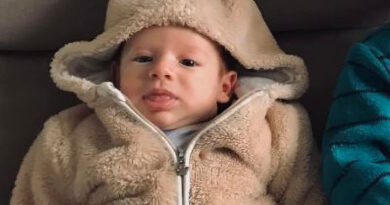Ukraine Surrogacy Clinic Says Fleeing Pregnant Women Carrying Rich Westerners Babies Must Return To War Zone To Give Birth
A surrogacy clinic in Kyiv now operating out of a bomb shelter has said that pregnant women who have fled Ukraine will have to keep the babies unless they return to the war-torn country to give birth.
Denis Herman, who works as a legal adviser for the exclusive BioTexCom surrogacy clinic in the Ukrainian capital Kyiv, which is fast being surrounded by Russian forces, told Newsflash in an exclusive interview that several of the pregnant women had fled the country but it had been arranged that they would “return closer to the due date of delivery”.
He said they have been advising their surrogate mothers “not to give birth in third countries, because the countries located next to Ukraine prohibit surrogacy”.
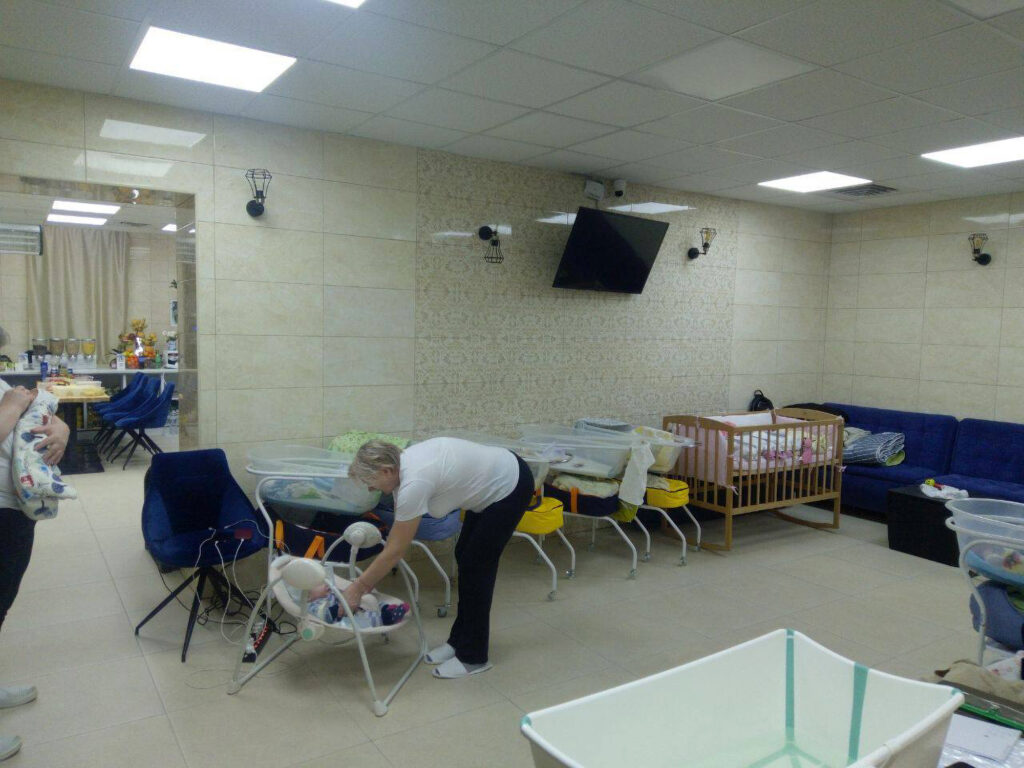
He added if they did so, there will be “lots of problems with the paperwork and establishing a parent-child relationship, because under the legislation of these countries a legal mother is always a woman who gave birth to a child regardless of a genetic relationship”.
The clinic is arranged for a special bombproof shelter to be turned into a maternity ward to shelter the expectant mothers, who have been advised to stay there rather than leave not just because of the legal problems of giving birth in another country, but also because of safety.
He said: “The roads are very risky, and the railway stations are still overcrowded, So, there is a risk for the health of the surrogate mother and the unborn child.”
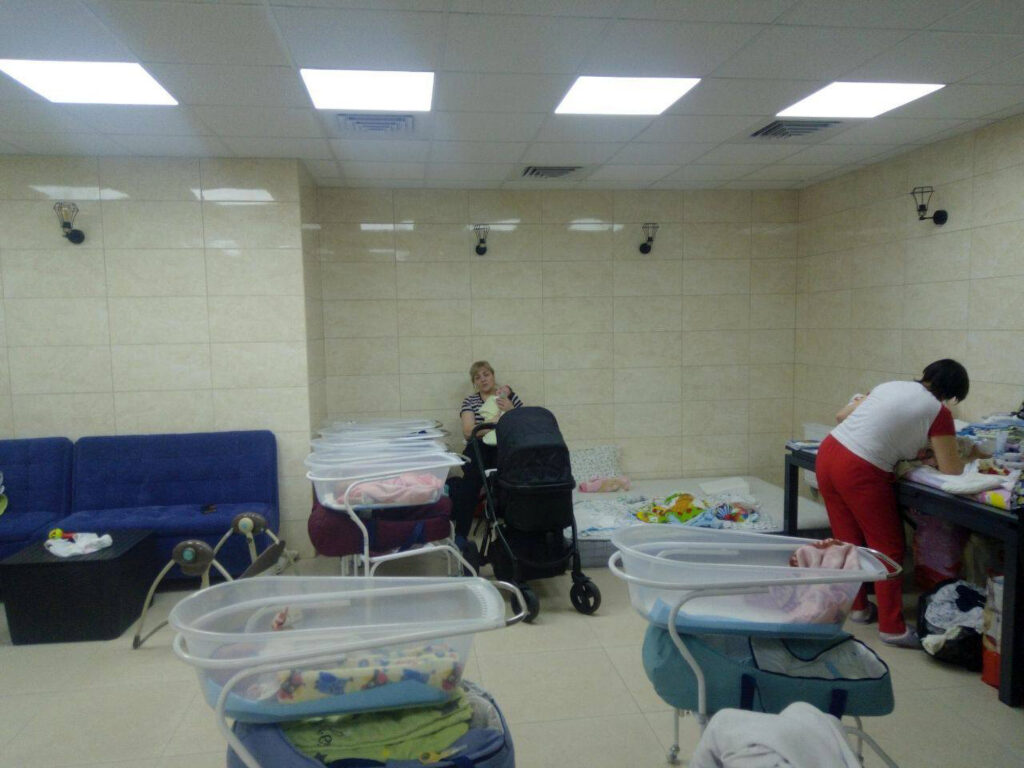
Prices at the BioTexCom clinic reportedly range from EUR 39,900 to EUR 64,900 (GBP 33,200 to GBP 53,980 or USD 43,450 to USD 70,675), which is still cheaper than in the United States, where prices can go well over USD 100,000, according to multiple American surrogacy platforms.
Herman said that the surrogate mothers are worried and concerned that the parents who paid them to carry their children will be unable to come and pick up their babies after the births. He said: “Of course, they are worried, and one of their concerns is when the parents will manage to come and pick up the baby after childbirth.
“We are in constant contact with all of the surrogate mothers, we assist them in relocation if needed. For example, one of our surrogate mothers lives in a region severely affected by the war. She asked us to let her live at our apartment with her child, while normally we would ask her to find a nanny for her child and pay her expenses. The next day after she moved, the attack destroyed a house where she intended to leave her child.”
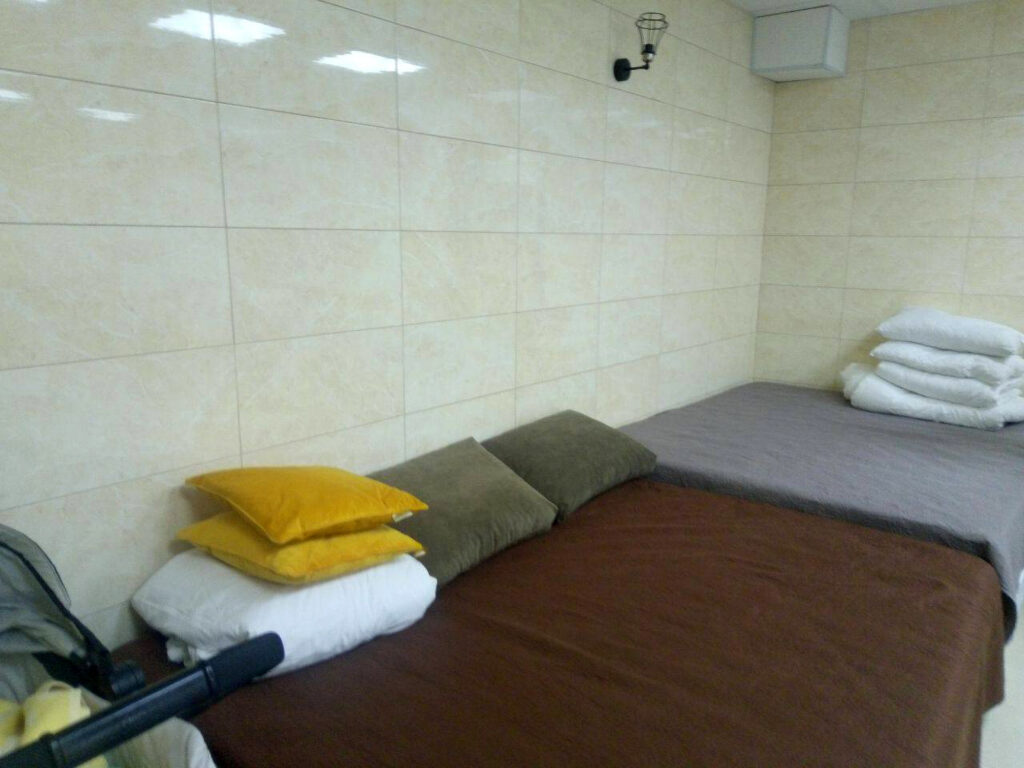
Herman said that the “current situation is very hard” but he added that they were fortunate to have not been affected directly by the Russian attacks yet.
Earlier in the week, shortly after Putin’s forces invaded the country, one surrogate baby was born in a temporary air-raid shelter and handed over to his biological parents who were forced to mflee on snow covered roads in the dead of night.
Little Alfonso was born in the makeshift bunker in the basement of a maternity hospital in Kyiv on 26th February, two days after Russia launched its ongoing large-scale military invasion of its neighbour.
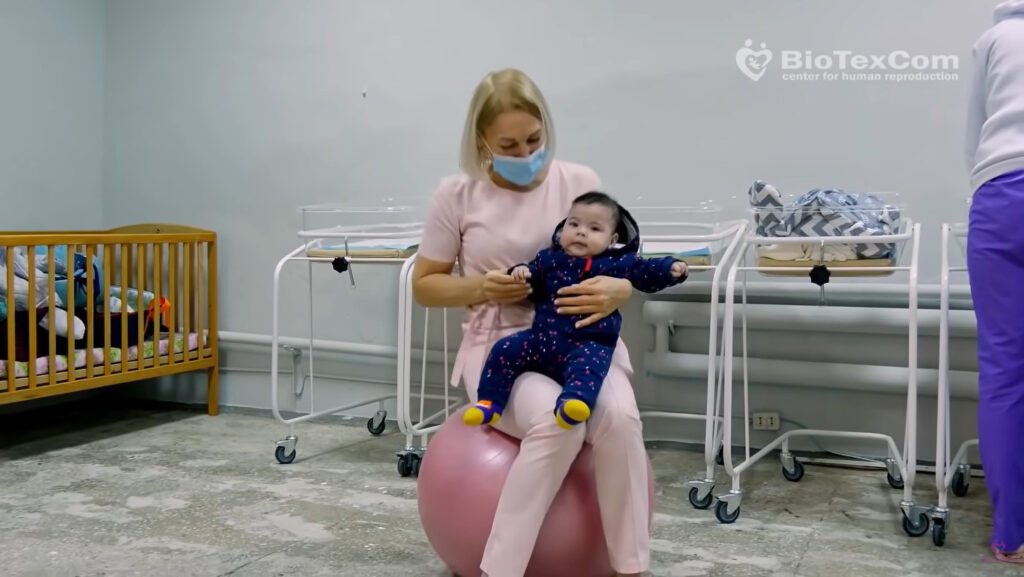
According to the Ministry of Internal Affairs of Ukraine, 352 civilians died on the day little Alfonso came into the world amid the sounds of bombs, missiles and sirens. At least 14 of them were children.
The newborn’s biological parents, Eugenia and Sebastian Manoni, captioned a picture of their newborn: “There is no war that love cannot overcome.”
Eugenia and Sebastian first flew to Ukraine in May 2021 to leave genetic material. Everything went as planned, and they received a due date of the end of February.
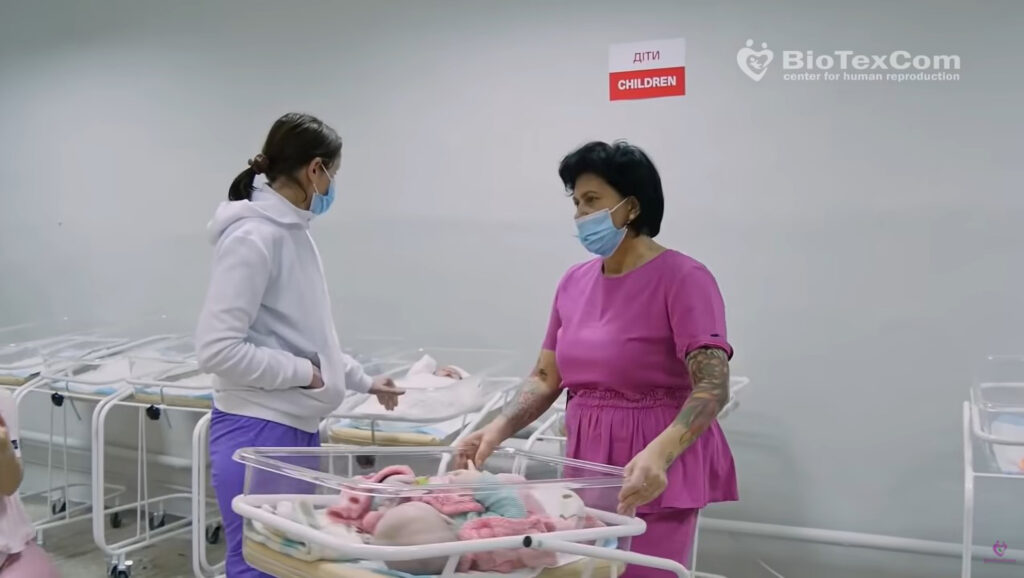
They returned to Kyiv along with other Argentine couples, who had travelled there for the same reason, when Russia suddenly launched the military invasion.
The couple and five other Argentine couples received a message from the Argentine consulate informing them to seek shelter in the bunker of the Argentine Embassy in Kyiv, and then had to cross the city to welcome their baby into the world.
Eugenia told Infobae: “Although the entire operation had been perfectly orchestrated, there was not much time. Sebastian drove for 17 hours nonstop through fog, snow and terrifying cold.”
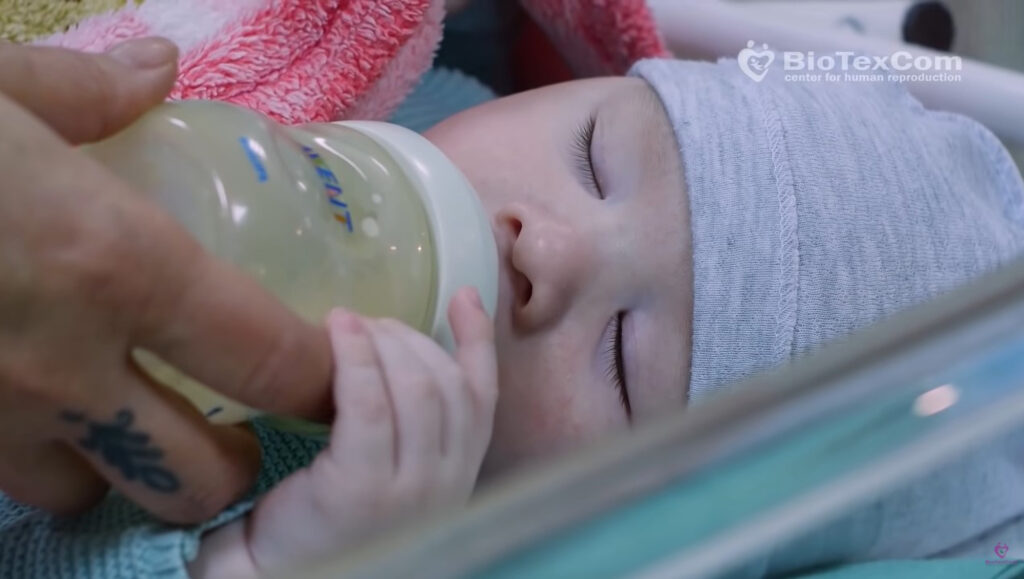
Their entire journey was monitored by satellite by the Argentine Foreign Ministry and the embassies of both countries. They finally reached the Romanian border near the town of Siret, only to come up against an endless queue of traffic.
But they swiftly breathed a sigh of relief when they were met in person by the Argentine ambassador and his wife, who had come looking for them – “like in a film”, according to Eugenia.
But as the war worsened other expectant parents now face the problem not just of getting out, but of getting in as well.
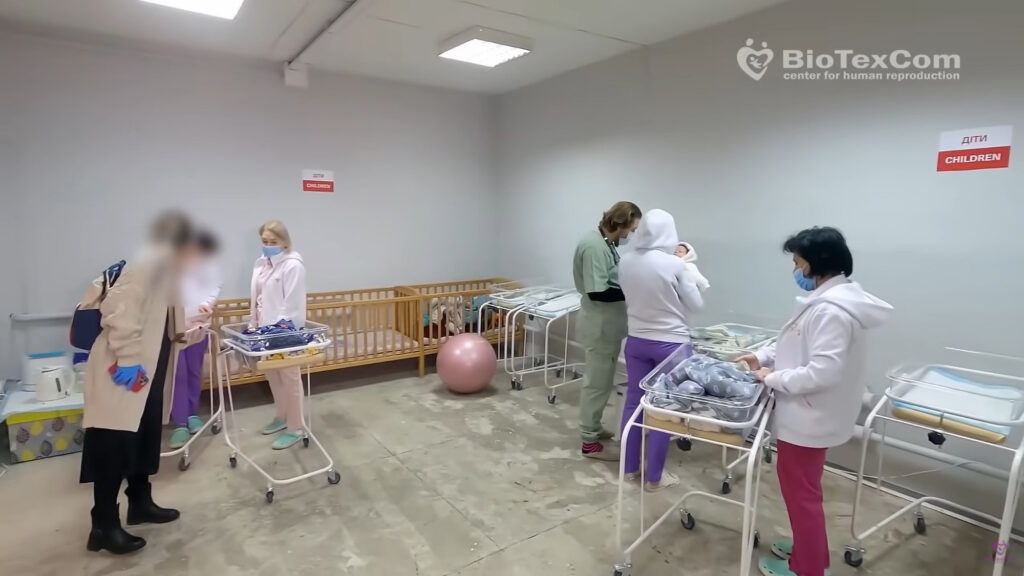
Speaking in a message addressed directly to parents who have paid for surrogate mothers to carry their babies for them, the legal adviser Denis Herman said: “We ask the intended parents that may see the article to stay calm and keep the contact with the embassies. We will take care of their children as long as it is needed.” (sic)
The startling revelation comes as Ukraine claims today to have shot down two Russian planes over the capital Kyiv, while a third round of Ukraine-Russia negotiations gives hope that future humanitarian corridors will be set up and respected to allow fleeing civilians to escape violence unimpeded.
Though the family has received sympathy over the ordeal, the couple’s actions have not been met without criticism.
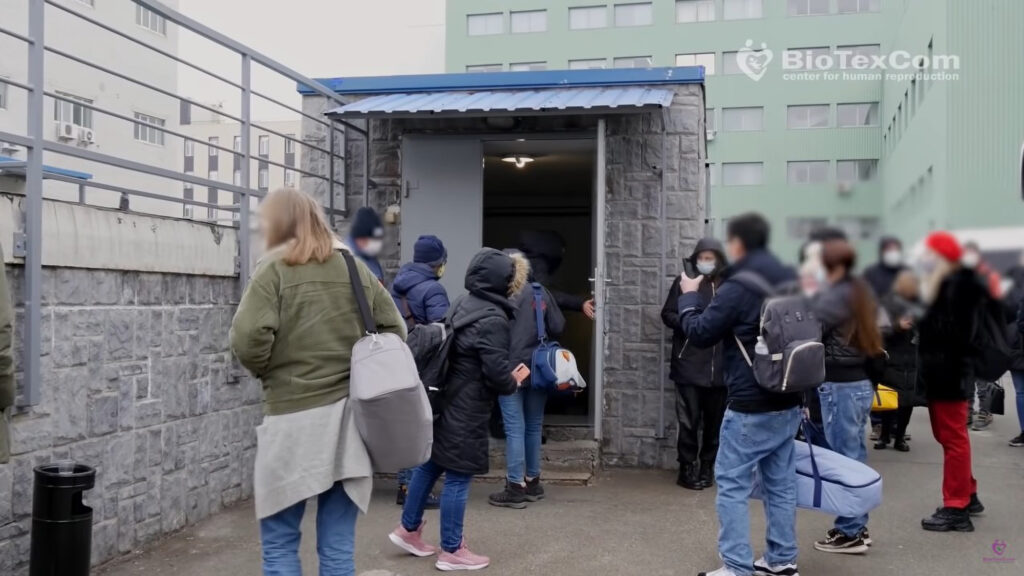
This is because Ukraine is one of only a few countries in which commercial surrogacy is legal, with clinics and private agencies offering such services, which has fuelled what has been dubbed “rent-a-womb tourism”.
Critics of the practice say it exploits vulnerable women, and they call the commercialisation of surrogacy a new form of human trafficking.
An Irish couple met their baby born through surrogacy in Ukraine on 3rd March and they reportedly said that they are relieved and thankful to the people of Ukraine. Gavin and Lesley-Anne Grimes reportedly said at the time that their surrogate mother was safe and was with her family.


